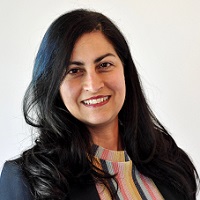About the session
You’re asked to team up with colleagues from another department, or from a whole different planet, and your experience with team work has so far been less than ideal. What do you need in order to make sure this collaboration works well?
Being trained in how to collaborate over a research project has been shown to enhance outcomes at every level. As the challenges around us become more complex, the only way to solve them in the long term is by working across academic disciplines, industry sectors and the impacted communities.
Sawsan Khuri has spent a large part of her career breaking down disciplinary barriers and enabling collaborative research. Join her to learn about team science and how to make it work for you.
Who is it for?
- Early Career Researchers (including Postdocs)
- Mid-Career Researchers
- Managers of Researchers
- Research-related Professional Services Staff (including research support administrators, researcher developers and career development professionals)
- Others eg: funding agencies.
Objectives
By the end of this session, participants will be able to:
- Define team science
- Understand team dynamics
- Ask relevant questions before starting a collaborative project
- Draft collaborative agreements
- Get more out of team science projects.
Get to know your facilitator

Sawsan Khuri, PhD FHEA FRSA SFHEA, Director, Collaborative Capacities
Sawsan is an innovation specialist and professional facilitator who began at the lab bench, spent a lot of time in front of a computer, and ended up in leadership positions breaking down disciplinary barriers for collaborative research. She is an active member of the International Network for the Science of Team Science and the International Transdisciplinarity network. She now runs her own company creating synergies among broad ranging stakeholders and working across the academic and business sectors. She continues to contribute to education through a part time lectureship at the University of Exeter College of Medicine and Health. Her major claim to fame is being featured in the Super Cool Scientists Colouring Book (MacSorely 2017)!
Session video and presentation
Download the presentation (PDF, 7.1MB)
Further resources
- The International Network for the Science of Team Science - lots of resources and news from the field
- Integration and Implementation Sciences blogs include lots of theory and practice around research collaboration
- The Collaboration and Team Science Field Guide is a must-read for anyone interested in developing collaborative agreements on any scale. Although it was written with the medical sciences in mind, the concepts in it are applicable to any cross-disciplinary collaborative effort.
All NPDC21 listed resources including presentation slides and top tips are freely available. Please ensure you acknowledge the author(s) and/or source when using them.
Back to: Researcher Hub
